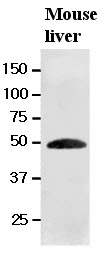
The extracts of mouse liver (20ug) were resolved by SDS-PAGE, transferred to NC membrane and probed with anti-human RNH1 (1:1000). Proteins were visualized using a goat anti-mouse secondary antibody conjugated to HRP and an ECL detection system.
Ribonuclease Inhibitor antibody [AT1H23]
GTX50017
ApplicationsWestern Blot, ELISA
Product group Antibodies
ReactivityHuman, Mouse
TargetRNH1
Overview
- SupplierGeneTex
- Product NameRibonuclease Inhibitor antibody [AT1H23]
- Delivery Days Customer9
- Application Supplier NoteWe recommend the following starting dilutions:Western Blot: Use at 1:1000 ~ 2000.Optimal working concentrations should be determined experimentally by the end user.
- ApplicationsWestern Blot, ELISA
- CertificationResearch Use Only
- ClonalityMonoclonal
- Clone IDAT1H23
- Concentration1 mg/ml
- ConjugateUnconjugated
- Gene ID6050
- Target nameRNH1
- Target descriptionribonuclease/angiogenin inhibitor 1
- Target synonymsIIAE12, RAI, RNH, ribonuclease inhibitor, placental RNase inhibitor, placental ribonuclease inhibitor, testicular tissue protein Li 164
- HostMouse
- IsotypeIgG2a
- Protein IDP13489
- Protein NameRibonuclease inhibitor
- Scientific DescriptionPlacental ribonuclease inhibitor (PRI) is a member of a family of proteinaceous cytoplasmic RNase inhibitors that occur in many tissues and bind to both intracellular and extracellular RNases (summarized by Lee et al., 1988 [PubMed 3219362]). In addition to control of intracellular RNases, the inhibitor may have a role in the regulation of angiogenin (MIM 105850). Ribonuclease inhibitor, of 50,000 Da, binds to ribonucleases and holds them in a latent form. Since neutral and alkaline ribonucleases probably play a critical role in the turnover of RNA in eukaryotic cells, RNH may be essential for control of mRNA turnover; the interaction of eukaryotic cells with ribonuclease may be reversible in vivo.[supplied by OMIM, Jul 2010]
- ReactivityHuman, Mouse
- Storage Instruction-20°C or -80°C,2°C to 8°C
- UNSPSC41116161

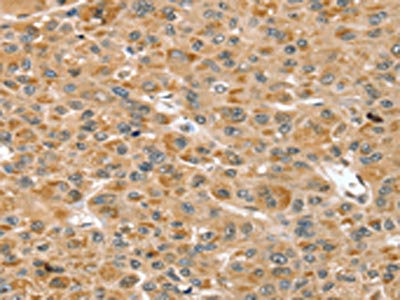
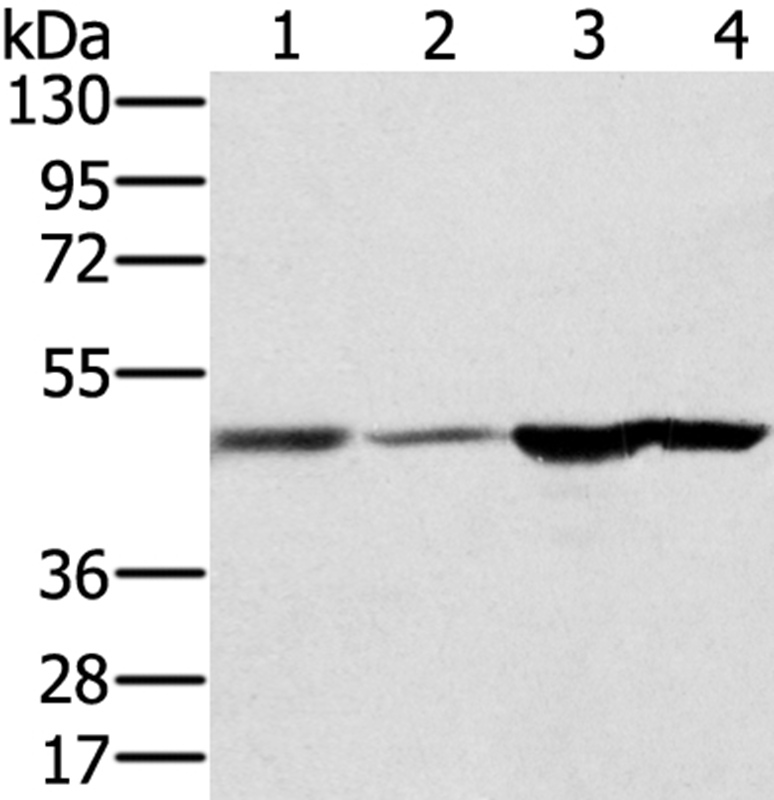


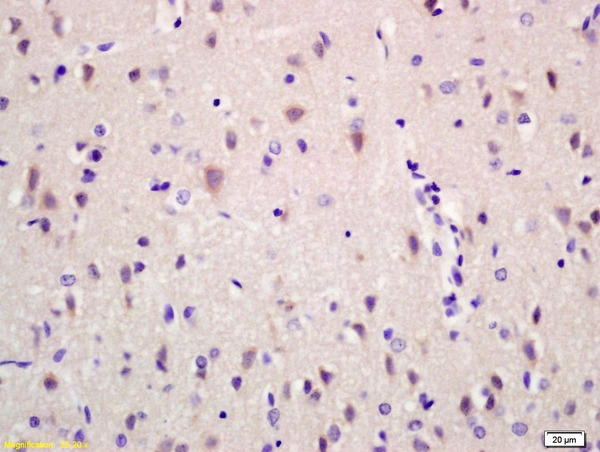

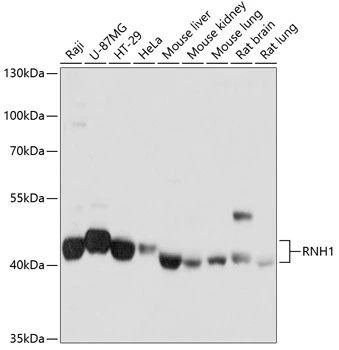
![IHC-P analysis of human thyroid tissue using GTX83696 Ribonuclease Inhibitor antibody [3F11].](https://www.genetex.com/upload/website/prouct_img/normal/GTX83696/GTX83696_1740_IHC-P_w_23061420_800.webp)